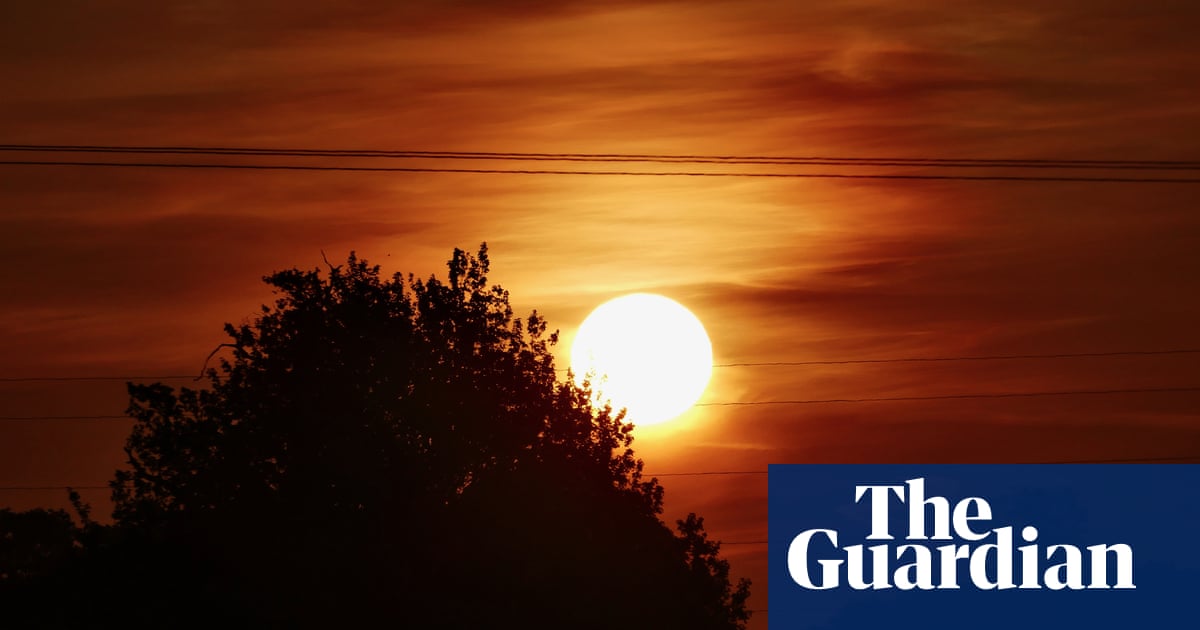The UK has had the warmest start to May on record as temperatures continue to soar, prompting warnings of wildfires and the “hidden dangers” of open water swimming.
Kew Gardens, in south-west London, registered 28C on Thursday, the Met Office said, taking it past the previous 1 May record high of 27.4C at Lossiemouth in Moray in 1990.
Temperatures are “still climbing”, the agency added, with Thursday also the warmest day of the year, beating the previous high of 26.7C reached in Wisley, Surrey, on Wednesday.
Last month was the sunniest April in the UK since records began in 1910, while it was also the third warmest April on record, the Met Office said.
The recovery of a 16-year-old boy’s body from a lake prompted emergency services to warn about open water swimming. The boy got into difficulty while swimming at Colwick country park in Nottingham on Wednesday evening and his body was found a few hours later,Nottinghamshirepolice said.
Ch Insp David Mather said: “While work is now under way to understand how the boy came into difficulty, I would like to take this opportunity to highlight this case as a reminder of the devastating consequences of entering open water – regardless of whether people do so deliberately or inadvertently.
“As in this tragic case, open water can have hidden dangers that can prove fatal and I would urge anyone who spends any time on or near open water to use this case as a devastating reminder of that – particularly during the recent warm weather we have been experiencing.”
The Nottinghamshire fire and rescue service group manager, Tom Staples, said: “This tragic incident serves as a stark reminder of the hidden dangers of open water. We urge everyone to take care around lakes, rivers and other natural bodies of water.”
The London fire brigade urged caution around open water swimming after a 32% increase in water-related incidents last month compared with the same period last year.
Patrick Goulbourne, the London fire brigade assistant commissioner, said: “With the hot weather, we understand the temptation to cool off in rivers, lakes or other bodies of open water. But even when the sun is shining, water temperatures can be dangerously cold. Cold water shock can affect anyone, regardless of fitness or swimming ability.
“It can lead to water inhalation and, in the worst cases, drowning. Be particularly careful near the water’s edge – it’s easy to slip or fall without warning. Always think twice before jumping into open water. Unlike designated swimming areas, these environments often lack lifeguards and have hidden hazards.”
The Royal National Lifeboat Institution offered similar warnings.
Fire services also warned the warm weather meant there was a “heightened” risk of grass and wildfires which could spread more easily during the dry spell. Temperatures are expected to ease by Friday, and Saturday will bring cooler conditions of 14C to 18C across the UK.
Stephen Dixon, a Met Office spokesperson, said on Thursday afternoon: “Temperatures tomorrow will be slightly reduced from what we’ve seen today, possibly 26 or 27 degrees in the far south-east of England through the day tomorrow.”
The RAC also cautioned drivers on the roads, with spokesperson Rod Dennis saying breakdowns were expected to “soar”.
“We’re urging everyone travelling to ensure they have plenty of water for themselves and any passengers in case they get stuck in traffic or break down, as well as having sunscreen, hats or an umbrella with them to protect themselves from the sun,” Dennis said. “Drivers must avoid driving if the low coolant light appears on the dashboard as there’s a serious risk of engine overheating.”
TheNHSalso reported that searches for hay fever advice had doubled from Monday to Wednesday.
